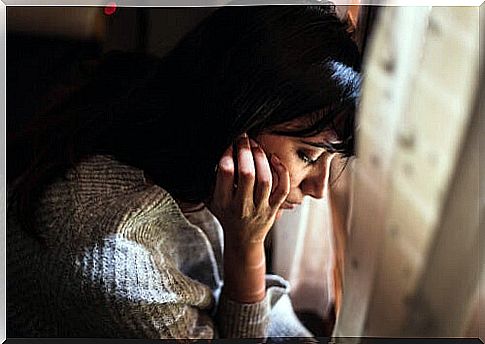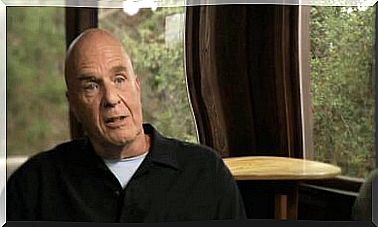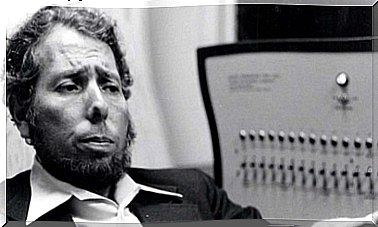Can I Live Without Me?

When we speak of happiness, we cannot forget the responsibility that we have ourselves in the achievement of this goal. However, the emotional education we have received leads us to a wrong approach. In this way the typical question that haunts us and generates a lot of discomfort: ” Can I live without you?” should be overtaken by this other ” Can I live without me?”
Professional experience has helped me understand and internalize the line in which we work from acceptance and commitment therapy and other contextual therapies. They emphasize that acceptance, which entails becoming aware of oneself and cultivating self-knowledge, is the main objective in the therapeutic process. And, therefore, it is a key piece in the achievement and maintenance of our well-being.

The pursuit of happiness
The main goal of all people in life is to be happy. Achieve well-being while achieving our dreams. But have you ever considered that everything you believe about the pursuit of happiness turns out to be false? What if this also makes you feel bad? What if all the efforts you make to achieve happiness actually take you away from it?
Studies on contextual therapies, specifically those focused on acceptance and commitment therapy (Steven C. Hayes & Wilson, 1994), speak of the existence of a series of useless and inaccurate beliefs around the pursuit of happiness with which we live.
At first glance these seem to make sense. However, based on the philosophy of life that they transmit, at the same time, these beliefs are the cause and the engine of the vicious circle in which we enter when pursuing the long-awaited happiness.
In this way, we enter a spiral, and as we try to find well-being, the greater the suffering. We talk about ideas that are accepted by society ( of course, everyone knows they are true! ). Ultimately, we fall prisoners in a psychological trap of which we are not aware and that leads us without remedy to self-deception and dissatisfaction.
Live without me
Living without me means living away from everything that makes us happy just because it causes us some discomfort, and we want to live comfortably, of course.
We know that every effort has a reward. In this way, we spend hours sitting studying to take an exam, we play sports and then feel better, we fall in love at the risk of not being reciprocated and even give up an immediate reward with the intention of receiving a greater one later.
However, sometimes the fear of suffering, of failing, of being rejected, of not feeling good about ourselves, makes us act in such a way that we can avoid such fear. What happens is that avoiding or escaping from those situations that involve feeling this emotion can take us away from what makes sense in our life, and therefore from ourselves.
Being genuine helps us to live each situation of our day to day with presence. Being in the here and now allows us to adopt a conscious perspective of what we feel, what we think, what emotion arises in us. For this, as the psychologist and coach Laura Chica says, the focus must be on ourselves and not on the outside.

Experiential avoidance disorder
Experiential avoidance disorder – a path to living without me – is a phenomenon that takes us away from those private experiences that make us miserable. When we fall under the influence of this condition, our behavior is aimed at avoiding, controlling or modifying the consequences (catastrophic thoughts, painful emotions, etc.) that these private events provoke in us.
Avoiding, escaping, or attacking feared events is incompatible with psychological acceptance. In this way, we are talking about a strategy for change that proposes doing nothing. That is, facing our emotional experience by letting go of discomfort. Admitting and tolerating private events and your own situation without trying to change or avoid them.
Ultimately, we come to the conclusion that experiential avoidance and psychological acceptance are two incompatible forms of behavior when we find ourselves entangled in an aversive situation.
Living without me is therefore a condition that leads us to live away from what is important to us, either out of fear, out of laziness, because we are having a bad time and we feel down, because of fear of what they will say …
We must not forget that avoidance and escape take us away from our goals and objectives. Thus, becoming aware and taking responsibility for our emotional management would be the fundamental pieces that are promoted from ACT (acceptance and commitment therapy) as effective change strategies.









